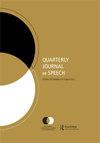Disidentifying from the “model minority”: How Indian American women rearticulate dominant racial rhetorics
IF 1.3
2区 文学
Q2 COMMUNICATION
引用次数: 0
Abstract
ABSTRACT This study examines how second-generation Indian American women negotiate the “model minority” stereotype within their everyday rhetorical practices. Conducting a close reading of three extended case studies drawn from a larger qualitative interview study, I argue that though the model minority identity is perpetuated within families as an enactment of social fitness, felt contradictions with normative raced and gendered expectations can create space for Indian American women to disidentify from conditioned identities. Specifically, this study demonstrates how Indian American women can construct counterstories to reimagine reductive racial narratives in ways that channel the privilege of the model minority positionality towards socially transformative ends. These counterstories contain four themes: threats of racial failure, gender slippage, disidentification from internalized identities, and colonial constructions of empowerment. By interrogating the discursive effects of racialization on minoritized individuals, which permeate but do not wholly contain an individual’s lived experience, this study calls for rhetoricians to further explore how marginalized rhetors actively participate in their own race remaking, at once sustaining and disrupting dominant racial meanings.从“模范少数族裔”中脱离:印度裔美国妇女如何重新阐明占主导地位的种族修辞
本研究探讨了第二代印第安裔美国女性如何在日常修辞实践中处理“模范少数族裔”的刻板印象。我仔细阅读了从一个更大的定性访谈研究中提取的三个扩展案例研究,认为尽管模范少数族裔身份作为一种社会适应性的规定在家庭中得以延续,但与规范的种族和性别期望的感觉矛盾可以为印度裔美国女性创造空间,使其脱离条件认同。具体而言,本研究展示了印度裔美国妇女如何构建反故事,以重新想象简化的种族叙事,将模范少数民族地位的特权引向社会变革的目的。这些反故事包含四个主题:种族失败的威胁、性别滑脱、对内化身份的不认同,以及权力的殖民建构。通过质疑种族化对少数群体个体的话语影响,这种影响渗透但不完全包含个人的生活经验,本研究呼吁修辞学家进一步探索边缘化修辞学家如何积极参与他们自己的种族重塑,同时维持和破坏主导的种族意义。
本文章由计算机程序翻译,如有差异,请以英文原文为准。
求助全文
约1分钟内获得全文
求助全文
来源期刊

Quarterly Journal of Speech
COMMUNICATION-
CiteScore
1.80
自引率
36.40%
发文量
39
期刊介绍:
The Quarterly Journal of Speech (QJS) publishes articles and book reviews of interest to those who take a rhetorical perspective on the texts, discourses, and cultural practices by which public beliefs and identities are constituted, empowered, and enacted. Rhetorical scholarship now cuts across many different intellectual, disciplinary, and political vectors, and QJS seeks to honor and address the interanimating effects of such differences. No single project, whether modern or postmodern in its orientation, or local, national, or global in its scope, can suffice as the sole locus of rhetorical practice, knowledge and understanding.
 求助内容:
求助内容: 应助结果提醒方式:
应助结果提醒方式:


